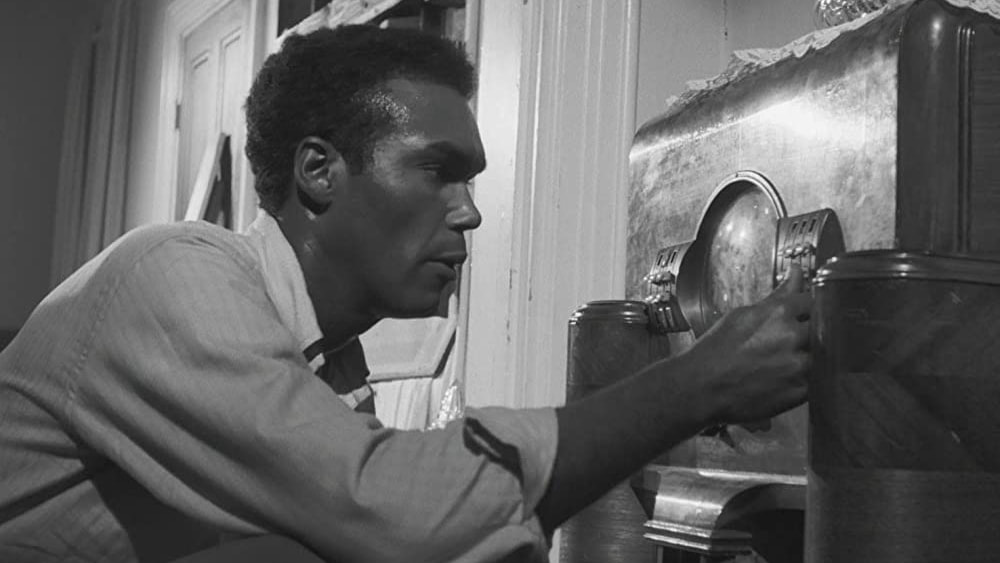Written by John Edward Betancourt If there is one thing that horror fans and cinephiles everywhere can agree upon, it would have to be that Night of the Living Dead is a cinematic masterpiece. Simply because it really does feature a perfect story, in every sense of the phrase. For it features a compelling plot, one that offers up a flawless three act structure and is complete with compelling dialogue and dynamic characters and of course, it is one of the finest horror films ever made. Because the whole notion of the dead returning to life to feast upon the living was revolutionary at the time and their unwholesome actions in this tale, are one of the many reasons that this movie remains relevant today, despite being released in 1968.
But while it is good to know that this film’s solid foundation has allowed for it to endure the test of time and even be inducted into the Library of Congress’ National Film Registry program, there are some other key elements that make this movie worth revisiting time and time again. Such as the fact that it has a lot to say about our modern world. Specifically, how our inability to put our egos aside and work as one in the middle of the crisis causes more harm than good and how we have yet to conquer racial inequality since some of the images present in this film, could be ripped from a daily headline. But while those are all important points to discuss in regard to this motion picture, there is one in particular that doesn’t get discussed enough and that’s what we are going to focus upon today… the fact that an African American actor was able to play the lead in a 1960s horror film. Which is no small feat, one that truly deserves more recognition and praise, especially when one considers that initially… the character of Ben was meant to be something quite different. For early drafts of NOTLD featured a man that was the polar opposite of the final product. One that was not well-spoken in the slightest and likely would have been forgettable. But when actor Duane Jones was cast, not only did he help to influence the formation of this character into the bold and dynamic man we see in the finished product, but he outright made history. After all, an African American man playing the lead in a horror film, or a film in general really, was a rarity in 1968 and while that alone is worth pouring over on a consistent basis, it’s what Duane and his character accomplish on screen that provide this historic moment with an enduring legacy. Because in essence, Duane’s portrayal of Ben and the changes made to the character, allow for Ben to serve as the anthesis to the often negative portrayal of African Americans on the silver screen. Which means that so many of the awful stereotypes that we tend to see in relation to African Americans in film, simply aren’t present here. For Ben isn’t a sidekick or full of awful one liners and comedic relief. He’s an outright hero in this story and he’s well-spoken and educated and he takes charge in this story and leads a group of innocent people on a quest for survival and whether he succeeds at that or not is irrelevant. Because this is the stuff we simply weren’t seeing back then and sometimes don’t see now, in regard to Hollywood and the small screen, and the significance of this, doesn’t end with this positive portrayal. For despite the film’s racial overtones and commentary on the civil rights movement that was raging during its release, Ben is actually viewed as an equal by the folks he’s trapped with. Granted, there is a power struggle between he and Harry Cooper as the film progresses, but that’s for different reasons not related to race. No instead, the conflict exists simply because Cooper is an egotistical know-it-all who thinks he is somehow qualified to lead in a crisis. But outside of his ego trip, Tom and everyone else take Ben’s lead on a great many issues and trust him and work alongside him and that too, is a big deal. Because that’s what representation in film and television should look like, where the disagreements are fundamental instead of being racially motivated and few movies have ever rivaled or matched what this film accomplishes in regard to that and believe it or not, there are still more significant moments to be found in this movie, revolving around Ben. Because he is also an outright action hero in the movie as well, since he’s the one with the gun and the fortitude to fight the dead and he’s also the man that brings forth the solution for defeating these ghouls. Since he’s the first one in canon to damage the brain and really in the end, all of these elements add to the enduring legacy of Night of the Living Dead and make it one of the most influential motion pictures to ever grace the silver screen. Because this one really was ahead of its time and it opened doors in ways, we never thought possible and that’s a wonderful thing for certain and it needs to be celebrated and discussed more often. Simply because… we still have a long way to go. For representation in film and television still needs a lot of work and it would behoove a great many to look to this film and its revolutionary decisions as a blueprint for the future.
0 Comments
Leave a Reply. |
Archives
December 2024
|
|
© 2012-2025, Nerds That Geek LLC.
All Rights Reserved. |
uWeb Hosting by FatCow


